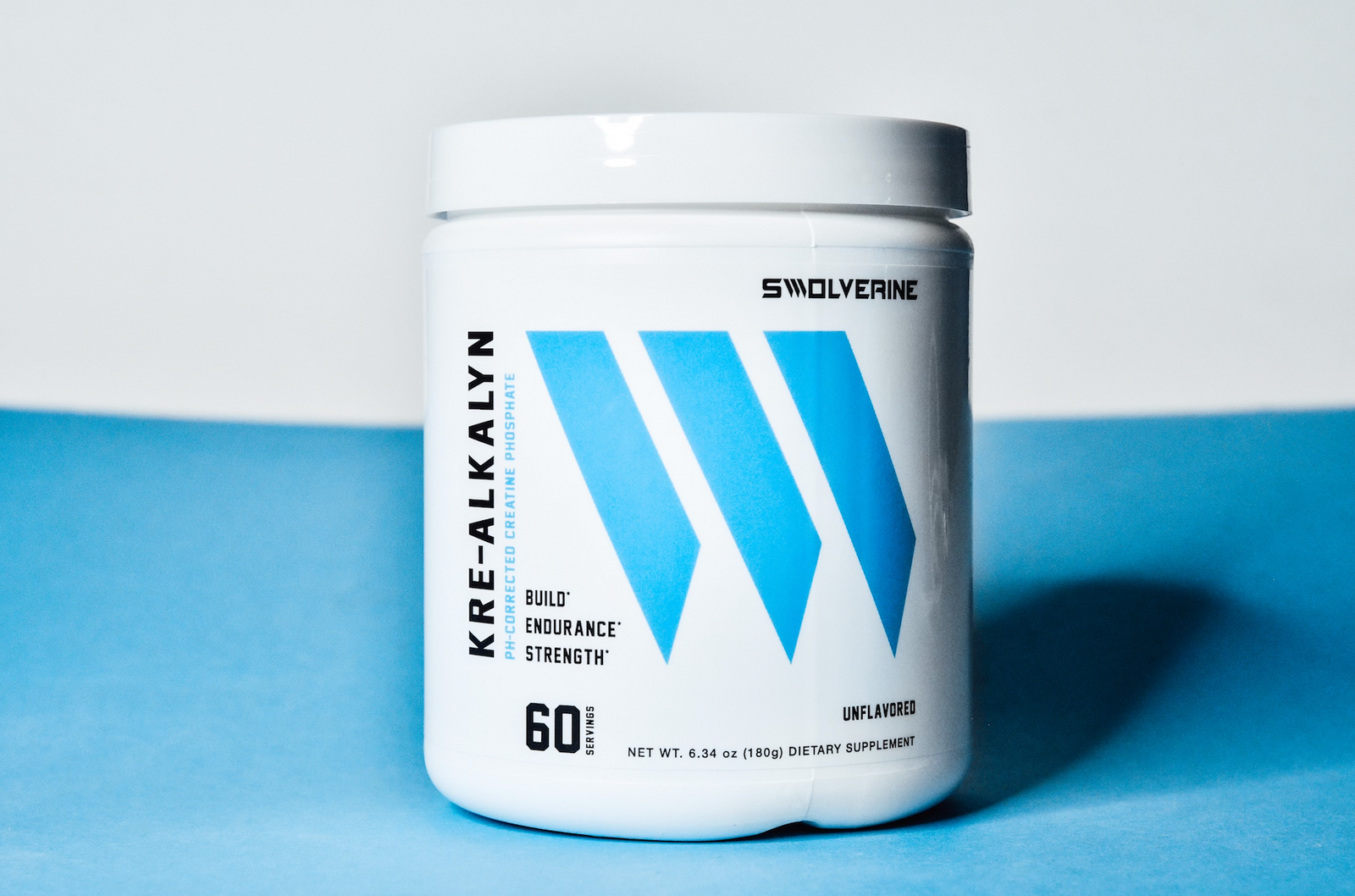If there were a supplement that could help you lift heavier, run faster, recover quicker, and even sharpen your brain—would you take it?
Spoiler alert: it already exists, and it's called creatine.
Creatine isn’t just for bodybuilders or elite athletes—it’s for anyone who wants to perform better, think clearer, and build strength from the inside out. Backed by hundreds of peer-reviewed studies, creatine is one of the most researched, reliable, and safest supplements on the market today.
In this guide, we’ll break down exactly how creatine works, why it’s so effective for high-intensity performance, and what you need to know about dosage, benefits, and safety—plus some surprising ways it boosts your brain health too.
Let’s dive into the science behind this powerhouse supplement and see why creatine deserves a permanent spot in your daily stack.
What Is Creatine?
Creatine is one of the most well-researched and effective ergogenic aids for performance enhancement, strength, and muscle gain. It's a naturally occurring compound synthesized from three amino acids: glycine, arginine, and methionine. Creatine is found primarily in skeletal muscle, where 95% of the body’s creatine stores are located, with the remaining 5% distributed in the brain, liver, kidneys, and testes (Kreider et al., 2017).
Though the body naturally synthesizes about 1–2 grams per day, supplementation significantly boosts intramuscular phosphocreatine stores, improving explosive strength, power output, and work capacity.
How Does Creatine Work?
Creatine’s primary role in the body is to support the phosphagen energy system, which fuels short bursts of high-intensity activity.
The Creatine-Phosphocreatine (PCr) System
-
Creatine phosphate acts as a rapid energy buffer, regenerating adenosine triphosphate (ATP) by donating a phosphate group to adenosine diphosphate (ADP).
-
ATP is your body’s primary energy currency, but it is stored in limited amounts.
-
Creatine kinase, an enzyme, uses phosphocreatine to rapidly resynthesize ATP during anaerobic energy demand (Harris et al., 1992).
Think of creatine as recharging your body’s internal battery—allowing for more reps, more sets, and higher power output in less time.
Energy Metabolism and Creatine’s Role
During high-intensity efforts (5–10 seconds), your body first taps into the ATP–phosphocreatine system:
Energy Systems Overview
-
Phosphagen System (ATP-PCr) – Creatine’s domain; used for short, explosive movements (e.g., sprinting, Olympic lifting).
-
Glycolytic Pathway – Provides energy during moderate-intensity efforts through glucose metabolism; produces lactic acid in anaerobic conditions.
-
Oxidative System – Dominates during lower-intensity, long-duration exercise; uses fats and carbohydrates in aerobic conditions.
The phosphagen system is fast and efficient but short-lived, lasting up to 10 seconds. That’s where creatine shines—replenishing ATP stores more quickly so you can repeat maximal efforts during training.
The Phosphagen System Explained
-
ATP is only stored in small amounts—enough for 1–2 seconds of maximal effort.
-
Phosphocreatine then provides 5–8 additional seconds by regenerating ATP.
-
Together, ATP + PCr can fuel up to 10 seconds of maximum intensity work.
-
Replenishment is quick—70% restored in 30 seconds, 100% in 3–5 minutes, making it ideal for intermittent, high-power activities (Balsom et al., 1994).
The more creatine your muscles can store, the more ATP you can regenerate—enhancing strength, speed, and power.
Benefits of Creatine Supplementation
Creatine is not just a performance enhancer—it has wide-ranging health and cognitive benefits:
1. Increased Muscle Mass and Strength
-
Improves workout volume and intensity
-
Enhances muscle cell hydration (cell volumization)
-
Stimulates muscle protein synthesis through IGF-1 activation
2. Improved High-Intensity Performance
-
Boosts sprint speed, jump power, and strength output
-
Reduces fatigue and improves recovery between sets
3. Cognitive Function
-
Supports brain ATP production
-
May help with mental fatigue, memory, and concentration—especially during sleep deprivation or intense cognitive tasks (Avgerinos et al., 2018)
4. Therapeutic Applications
-
May aid in neurodegenerative diseases (Parkinson’s, ALS, Huntington’s)
-
Supports post-exercise recovery
-
May benefit people with muscular dystrophy, diabetes, and depression
Is Creatine Safe? Safety and Side Effects
Creatine is one of the most extensively studied supplements and is widely considered safe and well-tolerated.
Proven Safety Profile:
-
No evidence of kidney, liver, or heart damage in healthy individuals at recommended doses
-
No need to cycle off or “detox”
-
Generally free of serious adverse effects
Common (Mild) Side Effects:
-
Water retention (increased intracellular hydration)
-
Possible digestive discomfort if taken in large single doses
-
Rare cases of muscle cramping or bloating
To minimize discomfort, use 5g daily, ideally post-workout, and stay hydrated.
Creatine FAQs
How much creatine should I take?
-
Loading phase (optional): 20g/day (divided into 4 doses) for 5–7 days
-
Maintenance: 3–5g/day
Best time to take creatine?
-
Post-workout with carbohydrates/protein for better absorption
-
On rest days, take with a meal
Does creatine cause water weight?
Yes—but it’s intracellular, not bloating or “subcutaneous” fat. This water hydrates the muscle, increasing strength and volume.
How Does Creatine Work: Key Takeaway
Creatine is a powerhouse supplement that fuels short-term, explosive power through ATP regeneration, enhances muscle and cognitive function, and remains one of the safest, most reliable performance aids available.
Whether you're a strength athlete, bodybuilder, or just want better workouts and cognitive clarity—creatine should be in your daily stack.
Related Articles
How Does Creatine Work: Takeaway
Creatine can provide you with more power output and strength during high-intensity exercise and training. If you’re looking for a way to maximize your endurance capacity and power output, creatine is an extremely effective option for performance enhancement. Studies have shown that creatine produces an anabolic effect, as well as plays a role in the energy metabolism of the brain, thus further strengthening its position within your supplement protocol, with numerous and beneficial therapeutic applications.
Looking for the best form of Creatine to help you crush your workouts?
Swolverine's Kre-Alkalyn® is a patented pH correct form of creatine phosphate. With the addition of creatine phosphate (PCr) into the muscle cells, the body increases its immediate energy supply, by facilitating the production of ATP which increases power output and strength. High-intensity training programs require the body to go under strenuous aerobic and anaerobic conditions. By supplementing the body with creatine, you will induce a greater improvement in exercise endurance and athletic performance, resulting in improved times, more peak power, and stronger lifts.
SWOLVERINE IS AN ENDURANCE ATHLETE AND ACTIVE LIFESTYLE BRAND. MADE FOR THE ELITE ATHLETE, AND THE STRONG-WILLED OUR PRODUCTS WERE DESIGNED TO FUEL YOUR ATHLETIC PERFORMANCE. WE PERFORM WHEN YOU PERFORM.
We believe that everyone can optimize not only their athletic performance but their human potential. The way we believe we can optimize performance is through transparency, clinically effective doses, and clinically proven ingredients with evidence-based outcomes. We provide the nutrients you need to power your active lifestyle.
Find similar articles:
Supplements






